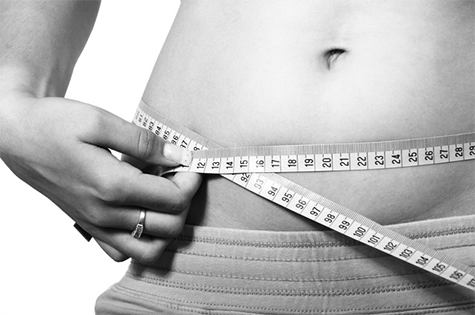Have you ever wondered why it is so hard to lose those last 5 kilos after plateauing? Or why despite the right diet and gym routine every day you can’t lose weight? Blame your brain, it is actually stress that is making you overweight. According to the founder of Uppy, Laura Moore, a performance and health coach, the body doesn’t understand the difference between a real or perceived threat so although someone may only be stressed about the amount of emails in their inbox, the body goes into fight or flight mode. This sets off a chain reaction of biochemical events in the body that piles on the pounds.
Laura has listed below the ways that stress sends the body into chaos and how to fix it.
Belly Fat
Public enemy number one. When an individual is stressed the adrenal glands in the body are activated which release adrenaline to increase the heartrate and blood flow, as well as cortisol to flood the body with glucose for immediate energy. Cortisol however also slows down the body’s metabolism to maintain the glucose supply, and when it isn’t used, it is stored as fat…on the stomach! These elevated glucose levels also suppress insulin levels which decreases energy in the cells. As a result the brain sends out hunger signals which causes over-eating.
Sleep
When we don’t get a good night’s sleep it disrupts the hormones ghrelin and leptin in our body. These hormones turn our appetite on and off and tell the brain what to do with the fat (use for energy or store it). Lack of sleep will confuse the process and you will experience unnecessary hunger, not know when you are full, and store fat when it should be burned. Furthermore our ability to perform at our best and make good decisions depends on the amount of sleep we have had, so on a day after little sleep you may choose to forgo exercise and choose poor meal options.
Digestion and calories
When the body is trying to fight a threat it shuts down anything not integral to survival at that moment, therefore when the body is stressed it normally shuts down the digestion system. Food is then not digested properly and a toxic build up ensues. These toxins retain fat and excess water resulting in you feeling puffy and sluggish. The calories we eat need sufficient nutrients in order to build tissue or burn fat. If our digestion is poor we don’t absorb the nutrients and the calories cause excess fat. The absence of the nutrients also triggers an urge to eat and leaves us feeling consistently hungry and in ‘fat storage mode’, making weight loss very difficult.
Exercise
Exercise can be stressful on the body but not necessarily a negative stress. If your body is in a constant heightened state of stress then it will already have excess hormones and doesn’t need any more. Exercise releases cortisol but if the levels are already too high in your body then it could contribute to weight gain. In this type of situation, re-evaluate the type of exercise and intensity and notch it down until the optimal state of the body is restored.
How do we fix it?
According to Laura the best way to overcome “stress induced fat” is to do the following:
- Sleep 7-8 hours a night (it has been said time and time again but it is true)
- Turn off technology 30-60 minutes before sleeping (the blue light it emits kills melatonin which is needed to sleep) and establish a relaxing sleep routine
- Eat simple meals with no more than 7 ingredients and make them whole, natural ingredients
- Practice yoga and meditation (even start with diaphragmatic breathing) – this helps increase awareness and is the best way to relax the sympathetic nervous system, giving you a sense of calm and clarity
- Know what your stress triggers are and devise to deal with them
- Get professional advice
- Do what makes you happy – schedule it in at least once a week and don’t let anything distract you from it
ABOUT THE EXPERT
Laura is a qualified personal trainer and the founder of Uppy. Uppy is a specialised service that empowers women to maximise their performance, both personally and professionally.








 Agree (0)
Agree (0) Disagree (
Disagree (










__small.png)










